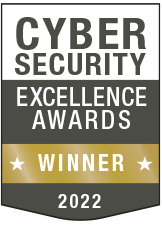Photo Gallery
 |
Fortinet NSE Certification Program

Additional Info
| Company | Fortinet |
| Company size | 10,000 or more employees |
| Website | http://www.fortinet.com |
NOMINATION HIGHLIGHTS
Since the launch of the initial Fortinet Certification Program in 2004, the program has evolved from two certification to an eight-level Network Security Expert (NSE) program. The eight levels, totaling over 400 hours of curriculum, consists of cybersecurity fundamental education (NSE 1-3), technical product training (NSE 4-6), advanced solution-based training (NSE 7) and the cybersecurity expert recognition (NSE 8).
At the beginning of this year, Fortinet announced the extension of all its advanced self-paced courses available free of charge to continue developing the world’s cyber workforce. The free cybersecurity training courses first opened up for free in early 2020 offer more than 30 self-paced, technical courses on critical topics ranging from secure SD-WAN to operational technology to cloud security. There have been more than 1,400,000 registrations for these free courses to-date and over 700,000 NSE certifications earned.
The ecosystem supporting this program has also evolved from a small number of Authorized Training Centers (ATCs) to a global network of more than 88 commercial ATCs, more than 420 academic partners.
The NSE Training Institute has also developed many partnerships, programs, and initiatives to support its goal of closing the cybersecurity skills gap and supporting its customers under the Education Outreach Program. For example, as a founding partner of the World Economic Forum’s (WEF’s) Centre for Cybersecurity, Fortinet continues to build on its partnership with Salesforce.com and WEF on the Cybersecurity Learning Hub initiative. The Cybersecurity Learning Hub leverages Fortinet’s NSE 1 and NSE 2 courses to create free courses and badges to further address the global skills gap issue.
The growth of Fortinet’s NSE Training Institute includes partnerships with organizations focused on women and minorities, like WOMCY Latin America, Women in Cybersecurity (WiCyS), Women in Tech and the International Consortium of Minority Cybersecurity Professionals (ICMCP).
How we are different
• Through the Security Academy Program, Fortinet supports almost 420 institutions in more than 85 different countries and territories. These academic institutions range from K-12 to higher education and research institutions. Through the program, institutions are given access to Fortinet’s NSE Certification Program content to integrate into their own curriculum, along with exam vouchers, in order to prepare students for a career in cybersecurity and help develop the next-generation of cybersecurity professionals. Fortinet also works with colleges and universities on a career accelerator initiative that runs students through NSE Level 4 training and certification accompanied by a 12-week internship with Fortinet to experience various roles in cybersecurity from support and services to training and marketing. The end goal of the initiative is to accelerate careers in cybersecurity through a position at Fortinet.
• Fortinet’s programs have helped over 2000 veteran and military spouses through training, certification and career placement. Over 50% of all Veteran Program graduates have started a career at Fortinet or a Fortinet hiring partner, of which there are over 390. 13% of all Fortinet employees in the USA are veterans. Fortinet is also partnering with veteran non-profits, most recently including Hire Heroes USA, to help veterans and military families develop skills, reskill, or upskill to enter a career in cybersecurity.
• Fortinet has developed Education Pathways, which are available to everyone, to further facilitate the transition into a career in cybersecurity and close the skills gap. These pathways were created to help align Fortinet training and certifications with roles defined in the Cybersecurity Workforce Framework developed by National Initiative for Cybersecurity Education (NICE), a part of the National Institute of Standards and Technology (NIST). Fortinet has defined five pathways in some of the most critical areas in the industry: security operations, security-driven networking, adaptive cloud security, zero-trust access and operational technology.

Vote by Sharing
- Like
- Digg
- Tumblr
- VKontakte
- Buffer
- Love This
- Odnoklassniki
- Meneame
- Blogger
- Amazon
- Yahoo Mail
- Gmail
- AOL
- Newsvine
- HackerNews
- Evernote
- MySpace
- Mail.ru
- Viadeo
- Line
- Comments
- SMS
- Viber
- Telegram
- Subscribe
- Facebook Messenger
- Kakao
- LiveJournal
- Yammer
- Edgar
- Fintel
- Mix
- Instapaper
- Copy Link
Each completed social share counts as a vote for this award nomination.



